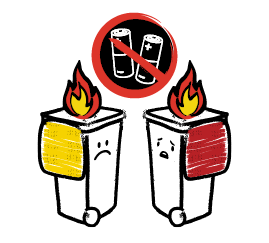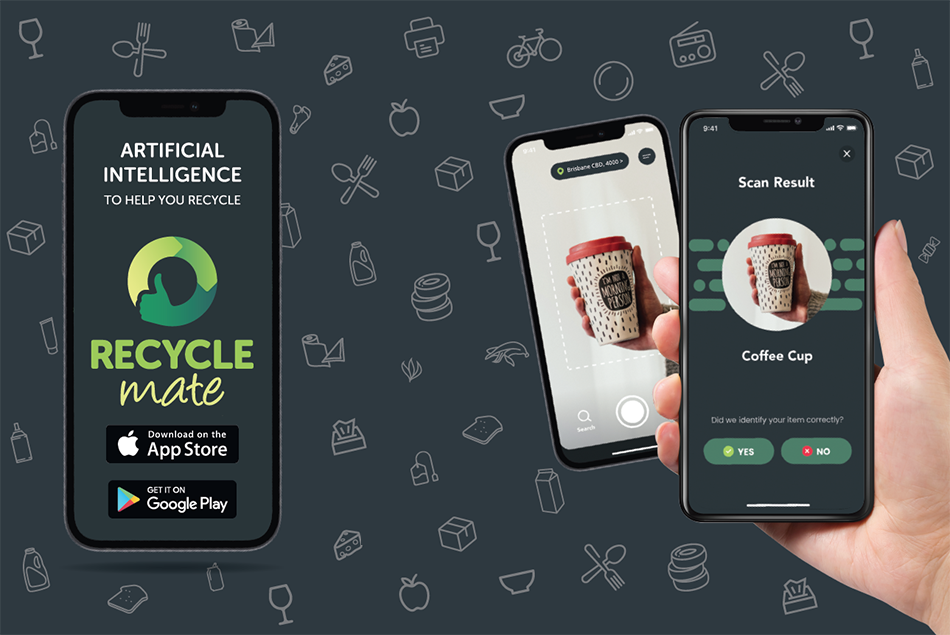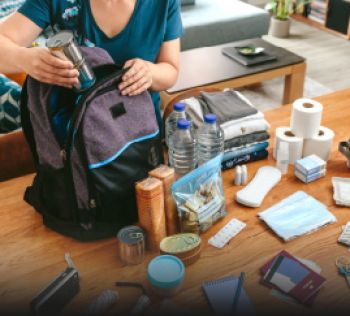What Goes in Your Bins
Let’s Get It Sorted, Townsville!
Recycling right creates local jobs, contributes to economic growth of our region, and reduces the amount of waste that ends up in landfill, which is good for the environment and our community.
The following materials can go in your recycling bin:

Recycle Mate Sorting Guide
Learn the right way to recycle with Recycle Mate. Search over 5,000 everyday items in the local sorting guide below to check what can go in your yellow-lidded bin, and where you can drop off items for free to our local waste transfer stations, product stewardship schemes and charities across Townsville.
Have a more specific question? Try asking our clever Recycling Chatbot:
Download the Free Recycle Mate App
Recycle Mate is free for Townsville residents to download and use on their mobile phones. Recycle Mate is a free resource available to every local council, recycler, product stewardship scheme, and charity to get involved with and promote recycling initiatives.
Resources
For quick reference, download the resources below to find out where you can dispose of your waste items:
- A-Z Guide to Waste and Recycling (PDF, 3.5 MB)
- General Waste Sticker (PDF, 2.4 MB)
- Let’s Get it Sorted Townsville Flipbook (PDF, 5.6 MB)
- Recycling Sticker (PDF, 1.7 MB)
General waste and recycling fridge magnets and bin stickers are available for free from any of our Customer Service Centres or from any Townsville Citylibraries location.
Keep the Following Out of Your Bin
Disposing of batteries and other combustible and hazardous waste through general waste bins or recycling bins puts our people and equipment in danger due to the risk of fire. Please help protect our people and environment by correctly disposing of combustible and hazardous items.
Transfer Stations and Landfill
If you are a domestic customer it's free to drop off a selection of household items at our waste facilities year-round. For information about which items are accepted at each waste facility, visit our Transfer Stations and Landfill page.
Some of these accepted items are:
- asbestos
- air conditioners
- batteries and vapes
- clean cardboard and metals
- electronic waste (e-waste)
- fluorescent light tubes
- gas bottles
- green waste
- paint
- polystyrene (Hervey Range Resource Recovery Centre only)
- reusable items for the tip shops
- used motor oil
- white goods.
B-cycle your Batteries and Vapes

Batteries are the most common form of hazardous household waste in Australia. When disposed of in household or workplace bins, batteries (including the ones in vapes) can cause fires in our collection trucks, material recovery facilities, and in landfills.
When safely recycled through the B-cycle scheme, up to 95% of a battery’s components can be turned into new batteries or used in other industries. Help us make a positive impact by responsibly recycling your household batteries.
For more information, visit our B-cycle your Batteries and Vapes page.
Disposing of Liquids and Hazardous Waste
We do not accept solvents, liquids, chemical waste, flares, explosives or combustible materials. However, Cleanaway Bohle offers collection and treatment of liquid and hazardous waste closely managed by their onsite industrial chemists and analysts. This ensures that the waste is processed and managed responsibly and safely.
The following items can be taken to Cleanaway for disposal:
- chemical waste
- flares, explosives or combustible materials
- liquids and solvents
- paint.
Flares can also be dropped off for safe disposal at:
- Townsville Maritime Safety Queensland Regional Office - 60 Ross Street, South Townsville
- Townsville Coast Guard - Sir Leslie Thiess Drive, Townsville.
Minimising Waste
Just because something can't go into your recycling or waste bin doesn't mean it has to end up in a landfill. Many items can be recycled through other means or even sold or donated if they're in good condition.
Head to your local charity store to re-home unwanted clothes, toys and household furniture. These items can be donated to op shops, men's or women's shelters, the RSPCA or church organisations.
If donating bulky items, like furniture, call before dropping them off to make sure the charity has the capacity to accept the item/s. Some can even pick up donations from your home.
For more information on what you can do, visit our Minimising Waste page.






